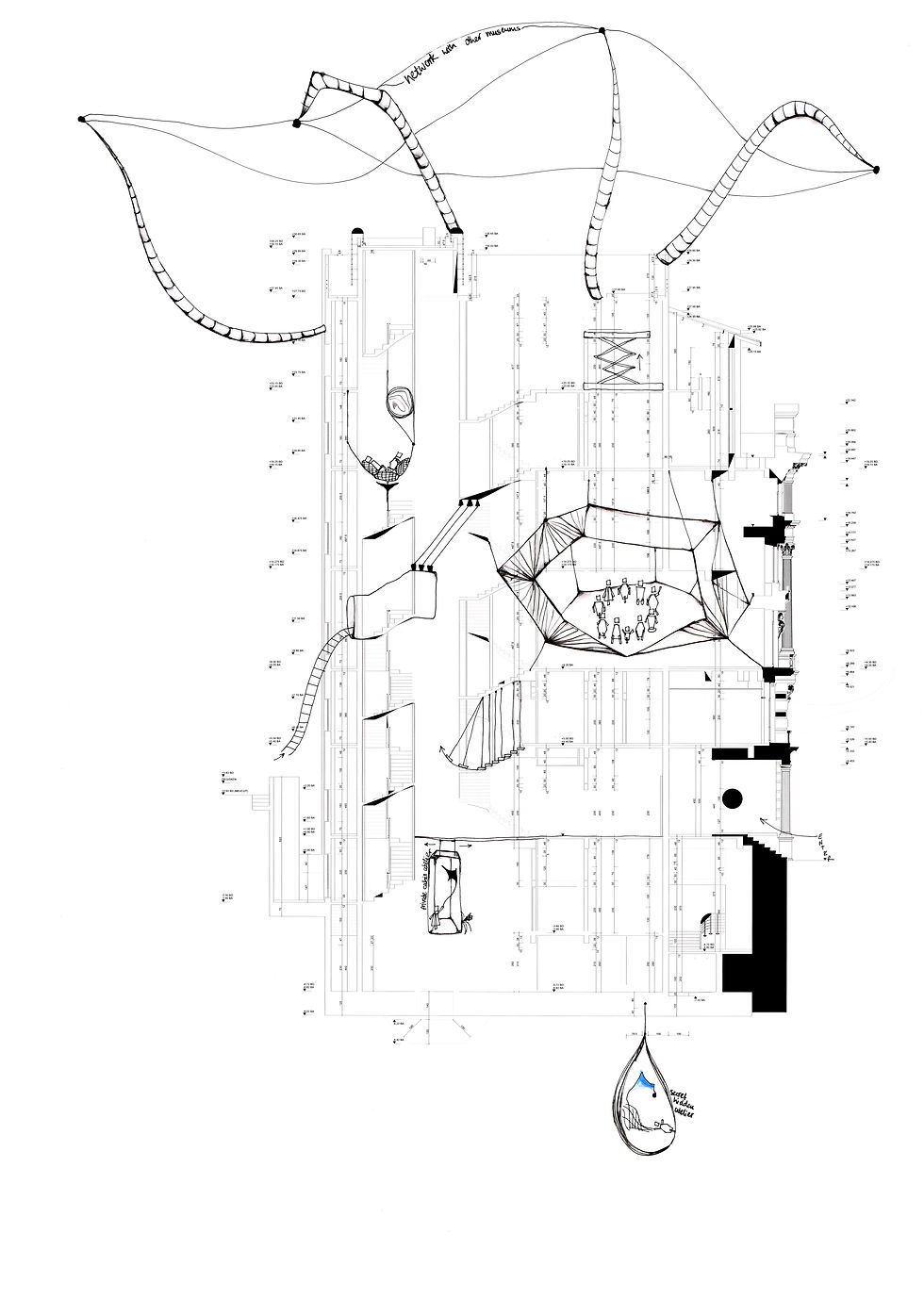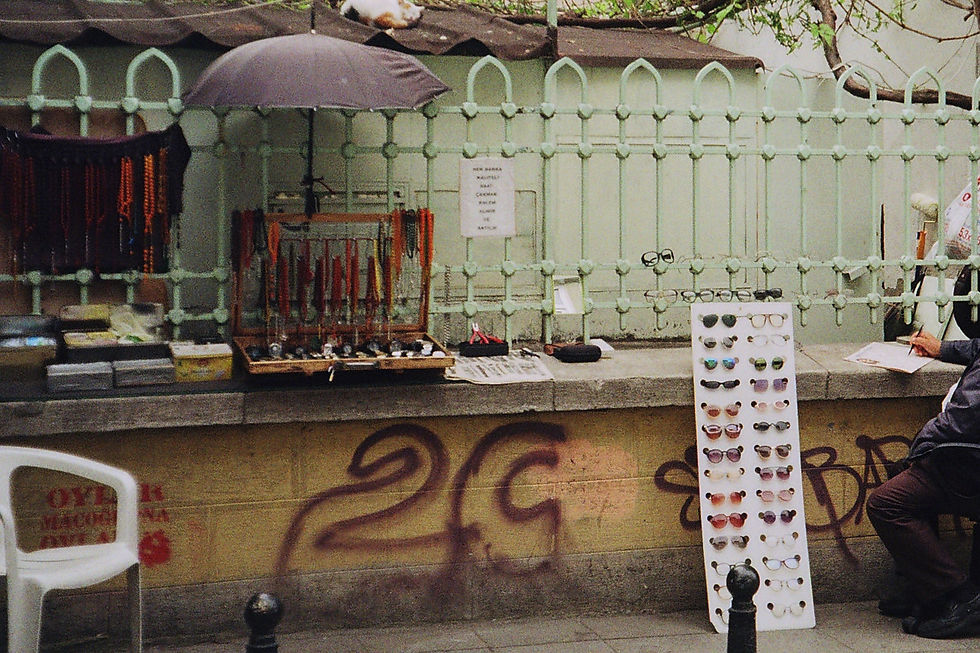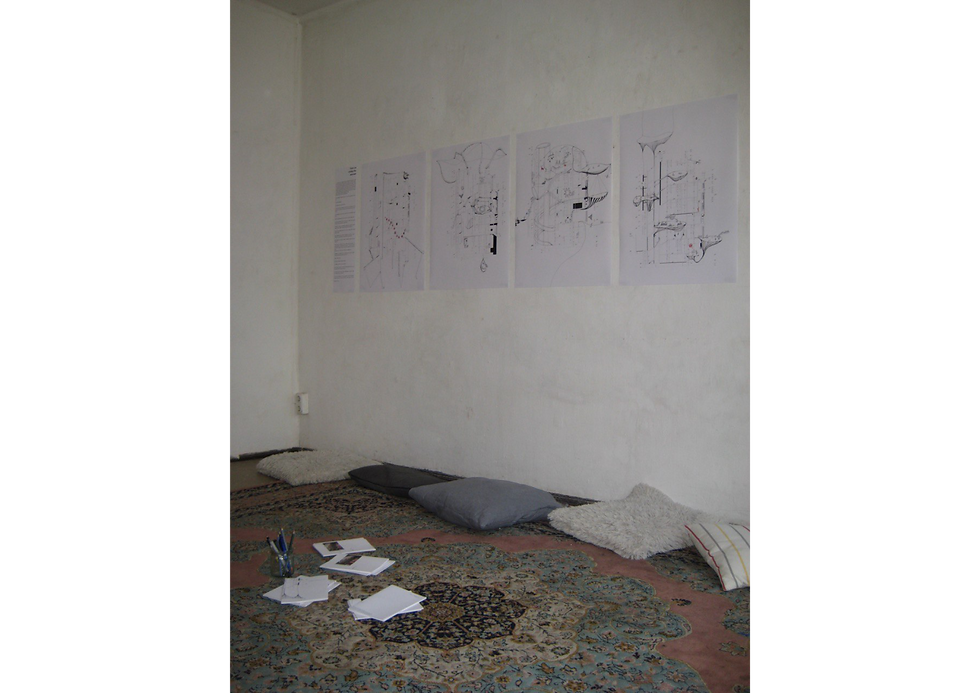THE INFORMAL MUSEUM
İstanbul, Weimar // 2024




The Informal Museum is a loose series of experiments that play with informality in museum culture, starting from a research on informal vending on İstanbul´s streets.
The project was created as part of PƎRⱯ Reverse - a collective exhibition with other architects, artists and researchers at Pera Museum in İstanbul, shown from May until August 2024.
It was supervised by Mona Mahall, Aslı Serbest and Yelta Köm.
Informality can be understood as an invented concept that categorises certain ways of acting as being inferior to others. Similarly, architectures often hold connotations that only speak to particular groups of people. The classic image of a museum building, for example, radiates a very formal and elitist idea of museum through its imposing architecture and excludes marginalised groups of people. The research explores how a different perspective on museums - detached from the idea of a built space - could perhaps enable a more open and participatory form of museum. In order to find a built form for an informal museum, however, we first have to let go of the strict categories in which our world is organised and in which we classify both informality and museums. This project can be seen as an ongoing process of discovering inspiring thoughts and thinkers on the issues raised.
I am using the terms informal and museum in italic letters throughout this work since their ethymology needs to be viewed critically and their meaning can vary depending on the speaker.



exhibition at Der Laden // Weimar, 25.07.2024

(on informality)
Informality is mostly defined by what it is not. It is understood as the exclusion from the formal (1), as something operating outside the radar of authorities, something unregulated.
On a more philosophical level, Yve-Alain Bois and Rosalind E. Krauss describe the „formless“ as an anti-concept (2) that breaks with the assumption that everything has or needs a form. Maybe because of the fact that the Informal therefore acts outside the concept of definition, the parameters of Informality are not a given.
In addition, Informality is a relative concept. What we perceive as informal depends on what we use as a formal basis. When we characterise informal activites by circumventing laws and norms, as it is often the case in western academic discourses, then the meaning of informal is directly linked to the laws and norms referred to, i.e. western values and standards. So certain activities and systems may seem informal – unregulated, chaotic, random, not fitting – from a western point of view, but in fact belong to their own concept of formality. In dominant ways of framing, these other concepts of formality are considered as inferior, and thus involved actors are placed in a marginalised position.
In fact, the duality of formality and informality is a western invention, and an effect of capitalism. Framing certain processes as informal is instrumentalised to justify external top-down interventions, rather than to understand the implications of precisely this informality, such as the conditions of poverty, exploitation and abuse that often go along with it.
The Informal, as opposed to formality in a western sense, doesn´t have a right to exist within strictly regulated systems of economy and governance. But what happens when these dominant ways of framing are challenged - not in terms of enhancing illegality but of acknowledging alternative methods of getting things done? Could systems in which not everything is supposed to have a form also function? Could a formless world also function? And maybe even function in a more cooperative, flexible and creative way?
(1) www.othermarkets.org, accessed in May 2024 (2) Rosalind E. Krauss, Yve-Alain Bois, Formless: A User´s Guide, 1997
soundcollage of film quotes and field recordings from İstanbul